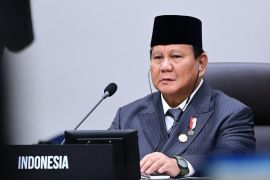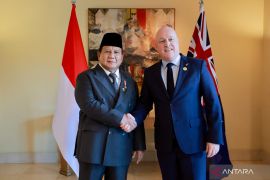To conduct a review on structural reform, we analyze the indicators agreed upon by economies, ranging from ease of doing business, access to basic services and infrastructure, labor productivity and participation rate to business innovation, youth unJakarta (ANTARA) - APEC member economies should act decisively, so that the next structural reform agenda facilitates regional recovery and resilience against crises and shocks and not solely tackling challenging tasks, APEC Policy Support Unit’s new report stated.
The final review of the Renewed APEC Agenda for Structural Reform (RAASR), an APEC Economic Committee initiative, was conducted by the APEC Policy Support Unit to assess member economies’ progress in efforts to conduct structural reforms and to look for gaps that can be worked on in future.
"Structural reforms eliminate structural barriers to improve access to economic opportunities and can also help economies to attain a higher growth trajectory," Director of the APEC Policy Support Unit Denis Hew stated.
"In times of economic uncertainty, policymakers often resort to structural reform to support recovery and boost growth," Hew affirmed.
"It is extremely relevant and important today, given that governments in the region are battling both a health and economic crisis," he pointed out.
APEC’s structural reform agenda is based on three pillars: first, developing more open, well-functioning, transparent, and competitive markets; second, intensifying the participation of all segments of society; and third, establishing sustainable social policies.
"To conduct a review on structural reform, we analyze the indicators agreed upon by economies, ranging from ease of doing business, access to basic services and infrastructure, labor productivity and participation rate to business innovation, youth unemployment, and digital infrastructure," Andre Wirjo, analyst of the APEC Policy Support Unit, concurrently co-author of the report, expounded.
The final review indicated that APEC had performed well in the areas of innovation and productivity across various metrics, including labor productivity per individual employed.
However, additional efforts are mandated to enhance university-industry collaboration in research and development, among others.
APEC has achieved some progress in terms of enhancing the efficiency of its labor markets and boosting their flexibility and agility. However, the report also noted that members should continue to bring about improvements in certain areas, including better linking employee pay to productivity.
The report further highlights the need for APEC to boost access to basic services and infrastructure as well as to enhance fiscal and social policies while alluding to variations in performance among members.
Most notably, APEC economic members should improve healthcare accessibility and social protection in view of the COVID-19 pandemic.
"Collectively, APEC has made good strides towards advancing structural reform efforts," Wirjo stated.
"However, members should continue making progress in advancing structural reform efforts through the APEC Economic Committee and other fora, so that economies can rebuild better post-pandemic," he remarked.
Moreover, inclusiveness is another key area in ensuring resiliency through structural reforms. The report recommends that members reinforce the significance of holistic approaches to structural reform efforts.
On top of core structural reform efforts, members should work jointly across agencies to formulate supporting policies in areas, including human capital development and social protection.
Related news: Open, predictable trade environment key to food security: APEC
Related news: Malaysia announces first virtual APEC 2020 Leaders' Meeting
EDITED BY INE
Reporter: Yuni Arisandy Sinaga
Editor: Fardah Assegaf
Copyright © ANTARA 2020











